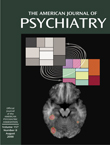More Questions About Recovered Memories
Dr. Chu et al. wrote about dissociation, amnesia, and childhood abuse and mentioned a “heated debate” about these topics. However, they presented only one-half of that debate, largely omitted the serious criticisms that have been directed at the point of view they espouse, and blandly stated suspect opinions. This selective emphasis was particularly noteworthy in that the authors presented material regarding a patient population that might well have been subject to the same drawbacks as earlier studies in this field.
The article by Dr. Chu et al. stretches credibility by describing a remarkably skewed clinical population. Only 11 patients were said to have suffered from fewer than 10 episodes of sexual abuse, 28 suffered 10–100 episodes, and 31 suffered more than 100 episodes (their Table 3). Such cases may exist, but the authors must have gathered together a truly large number of exceptional individuals in order to accumulate so many with such long-sustained and repeated episodes of sexual abuse and amnesia for the events.
Dr. Chu et al. claimed a “corroboration rate” of 89% of the participants who “recovered” memories after complete amnesia for sexual abuse and said that this rate is similar to that reported by Herman and Schatzow (83%). The claims made by Herman and Schatzow have long been challenged. They were based on a heterogeneous group in which individuals who claimed continuous memory were mixed with others who were “finding” memories and then “confirming” them. Those patients had group treatment in which one of the goals was to “recover memories.” The enormous harm done by that process has been thoroughly documented (1).
Another psychiatrist from Dr. Chu’s institution has pointed to flaws in the notion of recovered memory (2). The failure of Dr. Chu et al. to answer the trenchant criticisms of Pope (2) is a telling omission. The description given by Dr. Chu et al. of the proof that they said their patients found indicates inadequate scrutiny of the claims made, whereas the strongest clinical association of their multiple claims of abuse seems likely to be suggestive therapy or consorting with those who have been submitted to it.
This deeply flawed article misrepresents the literature, misunderstands the nature of proof, and mistakes belief for evidence. We must assume that it passed peer review, which is a very damaging reflection on the quality and impartiality of your review process.
1. Pendergrast M: Victims of Memory, 2nd ed. Hinesburg, Vt, Upper-Access, 1998Google Scholar
2. Pope HG Jr: Psychology Astray: Fallacies and Studies of “Repressed Memory” and Childhood Trauma. Boca Raton, Fla, Upton, 1997Google Scholar



